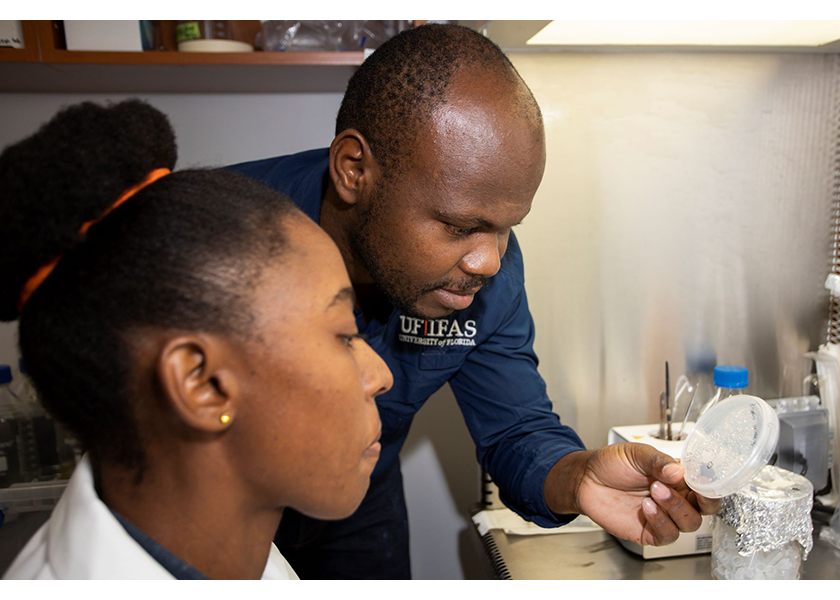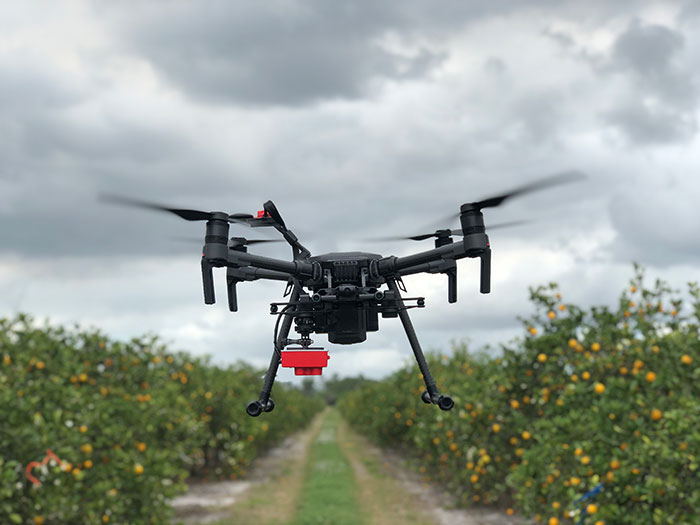So far, so good for the Florida fall produce season

You may know the drill when it comes to fall and early winter produce in Florida: It depends on the hurricane season. And yes, growers and marketers also watch for any frosts that pop up in what’s supposed to be the Sunshine State.
“Thankfully, we have not seen any major weather events recently like we did last year at this same time,” said Christina Morton, director of communications for the Florida Fruit and Vegetable Association. “By and large, producers around the state are on schedule with their planting.”
As shown so far this fall, it’s often a great time of year to be a Florida fruit or vegetable grower. That is, except for the competition with Mexico, which is not a level playing field, according to many ag leaders, including the state’s agriculture commissioner, Nikki Fried.
Florida growers remain optimistic about the season ahead, despite the continued supply chain disruptions related to COVID-19 and increased pressure from the supply of foreign products, mostly from Mexico, Morton said.
“They have been busy for months preparing to bring a bounty of fresh fruits and vegetables – food that is grown here in the United States – to the tables of millions of American consumers,” she said. “So, our message is pretty clear to consumers: Eat more produce and support your local Florida farmer.”
Buyers can source domestically all winter from Florida, including strawberries, citrus, sweet corn, cucumbers, tomatoes, eggplant, peppers, green beans and much more.
Volumes will be similar to previous years, and it’s too early to estimate sizing and quality, as harvesting hadn’t started by late October, Morton said.
“The start of season is quickly approaching, and we anticipate similar shipping dates as in years past,” she said.
Sweet corn and leafy greens should begin shipping in mid-November, and several other fall and winter crops should follow soon after.
In the Indian River District, citrus greening disease has reduced citrus grapefruit production by 90%, according to the University of Florida Institute of Food and Agricultural Sciences.
The bacterial pathogen that causes the disease is transmitted by an invasive insect, the Asian citrus psyllid. The disease shows up on citrus trees as leaves change from deep to lighter shades of green.
“Some studies report higher density plantings may bring early profits to growers, and we are seeing some compact cultivars that can fit for such purpose,” graduate student Martin Zapien said in a news release.
He helped lead a tour of a large-scale research trial in September.
“Of course, this is just one piece of the puzzle. We look forward to see other important components of the equation such as yield and fruit quality,” he said.
At the Sept. 13-15 Florida Fruit and Vegetable Association 77th Annual Convention in Naples, Fla., panelists spoke about agriculture innovations that will shape the future of farming in Florida and across the U.S.
Moderator Gary Wishnatzki, owner of Wish Farms and cofounder of Harvest CROO Robotics, shared about his harvesting service that automates the crop management, harvesting and packing of specialty crops, according to FFVA’s Harvester Blog. The harvester will make its first commercial strawberry pick in December, he said.

The Harvest CROO can determine when a berry is ready to pick and detect viruses or pests to help farmers make better decisions and reduce waste in the fields. The technology is also a solution to labor shortages in human-only cultivation and harvesting.
Also, University of Florida researchers are using artificial intelligence to help citrus growers better forecast their seasonal production. So far, they’ve found in a preliminary study that their technology predicts yields with 98% accuracy.
That’s up significantly from the 75% to 85% accuracy growers get when they count their trees manually, Yiannis Ampatzidis, a UF/IFAS associate professor of agricultural and biological engineering, said in a news release.
If they can predict their yield, citrus growers make better business decisions.
“Citrus yield predictions give growers, packinghouses and other distributors critical information before the farmers harvest the fruit,” Ampatzidis said.
He’s also a faculty member at the Southwest Florida Research and Education Center.
“Such predictions help growers know what resources such as workers, storage and transportation will be needed for the harvest.”










